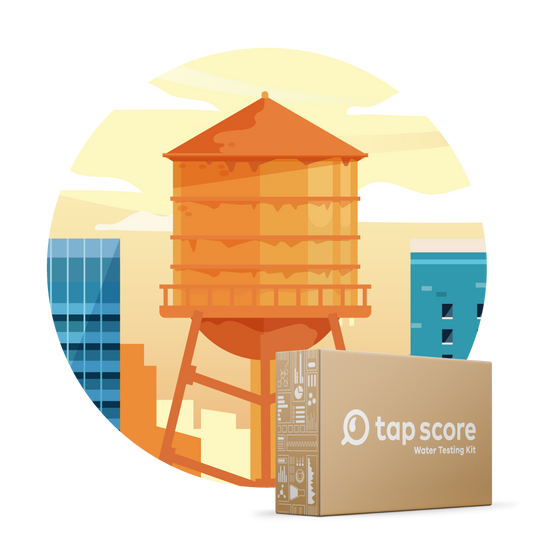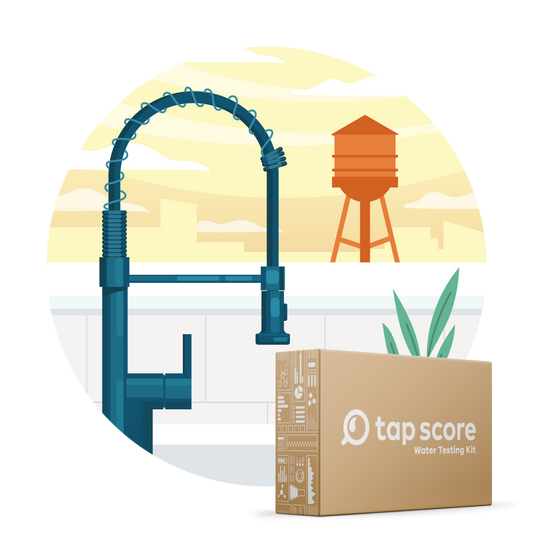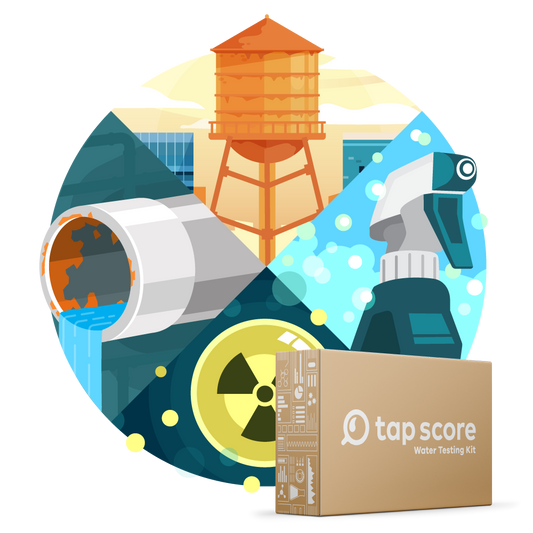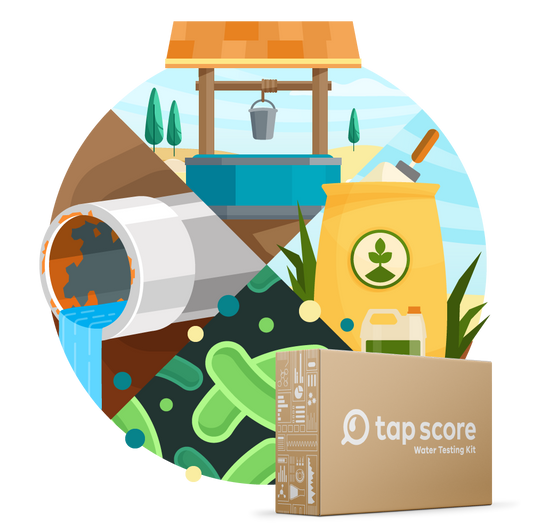
Quick Guide to Certified Water Filters for Fluoride
Our blog is written by real experts— not AI. Each guide is carefully reviewed and updated based on the latest research. Plus, with no affiliate links, you can count on unbiased insights you can trust.
Fluoride is a naturally occurring mineral found in water and soil. It is intentionally added into public water systems to improve dental health. Because too much fluoride can cause side effects, you might be looking for a way to filter fluoride from your water. But there’s no point in investing in a water filter if you can’t be sure it will work properly to reduce the contaminant in mind. That’s where certifications come in handy.
In another affiliate-free guide to certified water filters, we’ve done the legwork to find filters certified to NSF/ANSI standards for the reduction of fluoride. These are not recommendations or endorsements, but simply a list prompted by more of our curious customers.
Table of Contents:
- Why Does Certification Matter?
- What Are the Relevant Standards for Fluoride Reduction?
- Water Filters Certified for Fluoride Reduction
- Which Filter Is Right for Me?
- How Do I Know if Fluoride Is In My Water?
- What’s the Takeaway?
Disclaimer: Unlike most product lists, this guide is free of affiliate links. We do not earn commissions on any product we mention. In fact we do not link to products at all; this list will help reduce your search time by offering you a glimpse at filters certified by NSF, WQA, or IAPMO.
Why Does Certification Matter?
The National Sanitation Foundation (NSF), which works in tandem with the American National Standards Institute (ANSI), designs standards to ensure that treatment devices are composed of nontoxic materials and that they reliably and adequately remove specific contaminants.
Federal agencies that regulate drinking water (i.e., the EPA for tap water and FDA for bottled water) do not regulate treatment devices. Certification to NSF/ANSI standards helps provide consumers with unbiased information about which products will be effective for their water treatment needs. NSF/ANSI standards address the following:
- Materials safety
- Structural integrity
- Specific contaminant reduction claims
What If a Filter Is Not Certified?
Just because a filter is not certified does not necessarily mean that it will not be effective in reducing a specific contaminant. Certifications are voluntary and can be quite costly, so companies often choose to skip the process altogether. However, a company may also choose to skip certification because their product doesn’t work as well as they claim. There’s no way to know the intentions behind not getting certification.
What Are NSF, WQA, and IAPMO?
The NSF, WQA (Water Quality Organization) and IAPMO (International Association of Plumbing and Mechanical Officials) are simply three different organizations that grant certifications to water treatment devices that meet standards for performance and safety.

NSF, WQA, and IAPMO certifications are all of equal stature and any of their badges are intended to offer the consumer greater confidence when making a selection. What matters is that the product in question has undergone a thorough evaluation by one of these specific third parties that specialize in testing and certification.
NSF/ANSI Certifications Explained
What Are the Relevant Certifications for Fluoride Reduction?
NSF/ANSI standard 58 is the only standard relevant to certifying products for the reduction of fluoride (along with a select group of other compounds).
Each NSF/ANSI standard addresses a select group of contaminants, and certification can be granted on an individual contaminant-basis. This means a product may be certified for the reduction of one contaminant under a particular standard, but not all contaminants that standard covers.
NSF/ANSI 58
Sets minimum requirements for point-of-use (POU) reverse osmosis (RO) systems in particular. This standard covers contaminants such as fluoride, lead, arsenic, VOCs, and more, but sets specific requirements the system needs to meet for each contaminant.
Why Is Fluoride Used in Water Treatment?
Water Filters Certified for Fluoride Reduction
This is an incomplete list of products (including the brand, product name, SKU and certifying body) certified for the reduction of fluoride in drinking water.
This list was last updated December 2024. To confirm a product is still certified for fluoride reduction you can search their websites or call NSF, WQA or IAPMO directly. Remember, these are not recommendations or endorsements.

Reverse Osmosis Systems Certified to NSF/ANSI 58 for Fluoride Reduction
-
AquaTru Carafe
(System: AT100/ Cartridge: 10AT100RF01) IAPMO
-
Culligan Aquasential RO Drinking Water Filtration System
(System: RO/ Cartridge: RO50) WQA
-
Brondell Capella
(System: RC250/ Cartridge: RF-50) WQA
-
APEC Ultimate 5-Stage 90 GPD High Output RO Water Systems for Drinking Water
(System: RO-90/ [Cartridges: 1-SED10; 23-CAB10; MEM-90; 5-TCR]) WQA
-
RKIN Zero Installation Purifier Countertop RO Water Filter
(System: RKIN-ZIPAL/ Cartridge: FBA-ZIPFBL) IAPMO
-
3M Under Sink RO Water Filter Cartridge
([System: 3MRO501/ 3MRO401]/ Cartridge: 3MROP411) NSF
-
A.O. Smith RO Drinking Water System
(System: AORO-50/ Cartridge: S1448RS) NSF
-
GE Appliances RO Filtration System
(System: GNRQ18NBN/ Cartridge: FQ18PN) NSF
-
Everpure Conserv RO-75E High Efficiency RO System
(System: EV997700/ Cartridge: 4cc) NSF
-
Aquion Ultrarefiner II
(System: FMV-BNFP/ Cartridge: 51637) NSF
If we need to add an item or one of these has since lost its certification, please contact us at support@mytapscore.com
Which Fluoride Filter Is Right for Me?
The correct answer always depends on a unique combination of your preferences and the specifics of what’s in your water. There are many factors to consider when choosing a water treatment system. These include:
- Effectiveness against contaminants of concern
- Monthly operating costs
- Ease-of-use
- Filtration rate
- Replacement/maintenance requirements
In the case of fluoride, most public water systems fluoridate their water supplies. Water fluoridation, however, is strictly regulated.
As for the systems listed above, reverse osmosis tends to be more expensive than most other water treatment systems to purchase and install. It can also contribute to higher water bills.
We strongly recommend testing your water before making any treatment considerations. Particularly in the case of fluoride, a water test will reveal whether the levels of fluoride in your water are at the correct level.
How Do I Know There Is Fluoride in My Water?
Water fluoridation is a strongly recommended technique used by water treatment plants across the country. That means if your water comes from a public water utility, or “city water,” odds are there are safe levels of fluoride in it.

In public water systems, fluoride is intentionally added at around 0.7 PPM, a level deemed acceptable by public health officials for the purpose of protecting against dental cavities. You can test your water for fluoride (and a host of other contaminants and parameters) with the following City Water test Kits:
For those on private wells, fluoride is not added but may be present. Any fluoride present is likely naturally occurring (from soil and rock deposits) or due to human contamination (from aluminum intensive industries, pesticide use or fertilizer production).
Fluoride is typically below 0.7 PPM in private wells, but can vary.[2] Fluoride in private wells can reach levels up to and over 1.5 PPM, the concentration linked to lower IQ in children in a recent report by the National Toxicology Program.[3] You can still test your well water—which you should do annually—using the following Advanced Well Water test:
Tap Score certified laboratory water tests include easy-to-read water quality reports that also make unbiased treatment recommendations.
Have any questions or concerns? Reach out:
What's the Takeaway?
- In public water systems, fluoride is intentionally added at around 0.7 PPM, a level deemed acceptable by public health officials for the purpose of protecting against dental cavities. You can test your water for fluoride with a certified laboratory test kit to ensure fluoride remains at a safe level.
- NSF/ANSI 58 Sets minimum requirements for point-of-use (POU) reverse osmosis (RO) systems. While this standard covers contaminants such including fluoride, lead, arsenic, and VOCs, specific requirements need to be met for each contaminant.
- Certification to NSF/ANSI standards helps provide consumers with unbiased information about which products will be effective for their water treatment needs. Just because a filter is not certified does not necessarily mean that it will not be effective in reducing a specific contaminant, but a filtration company may choose to skip certification because their product doesn’t work as well as they claim.
Read our other certified filter quick guides:
Certified Water Filters for Lead
Certified Water Filters for PFAS
Quick Guide to Faucet Filters










